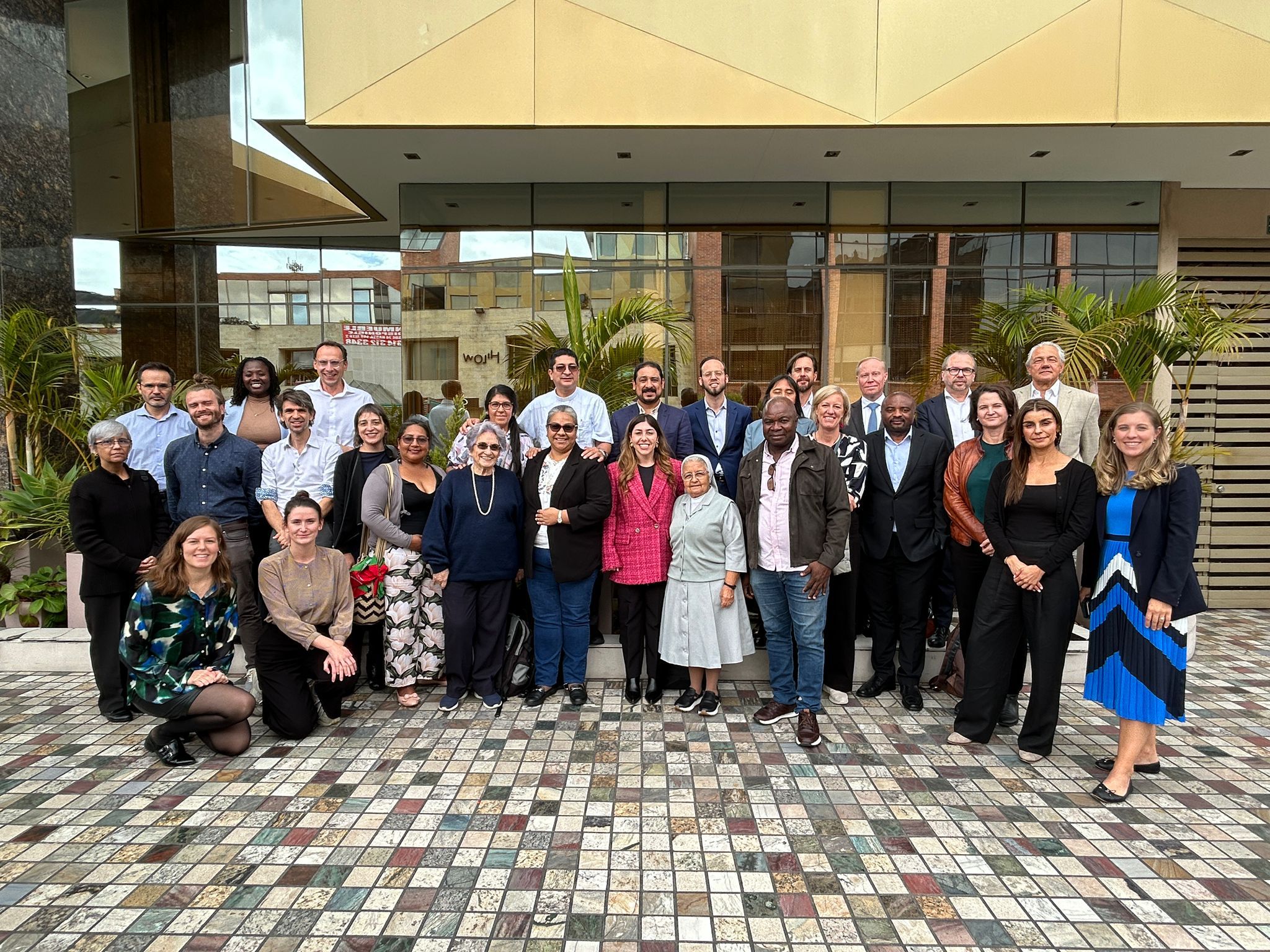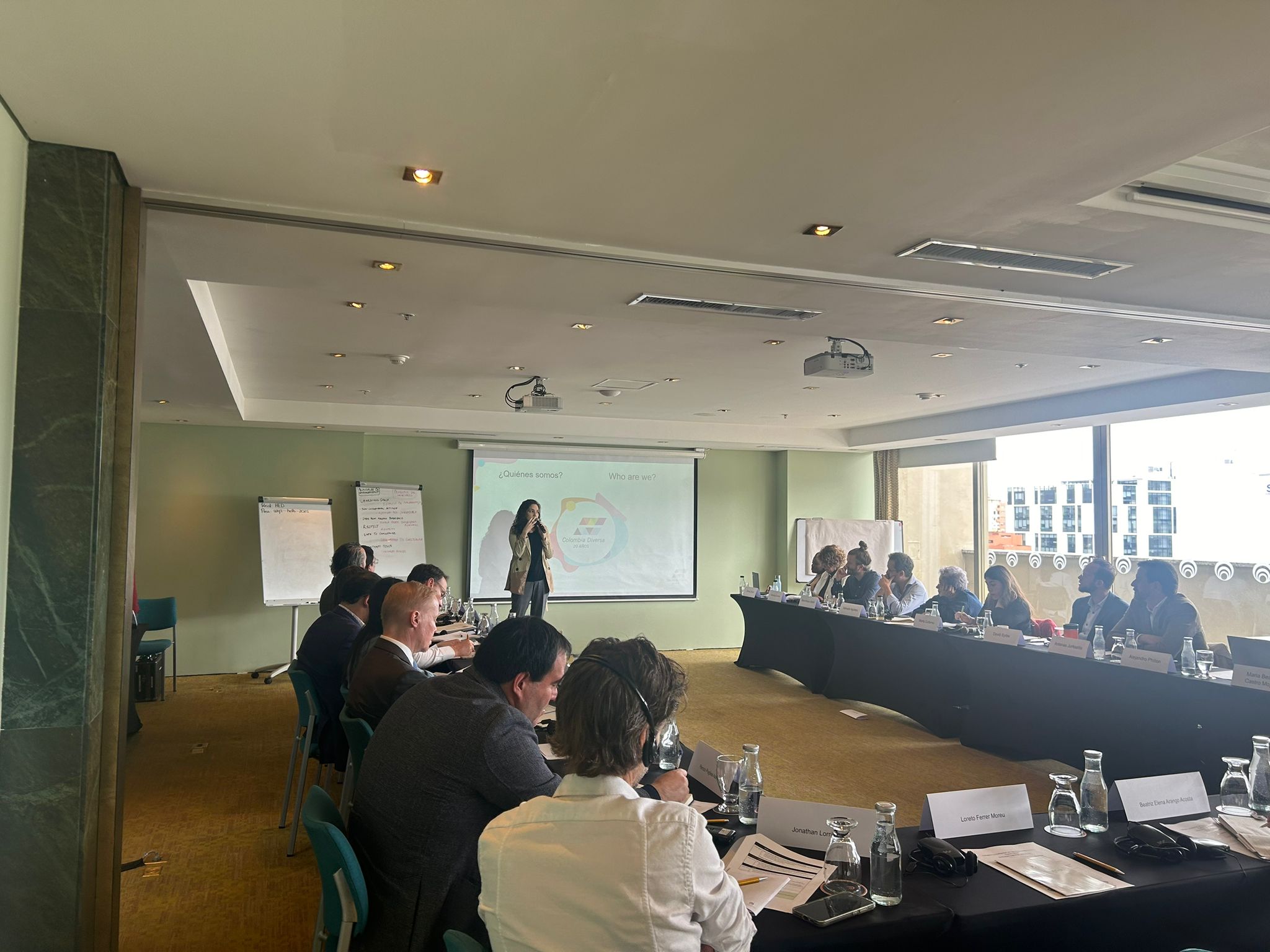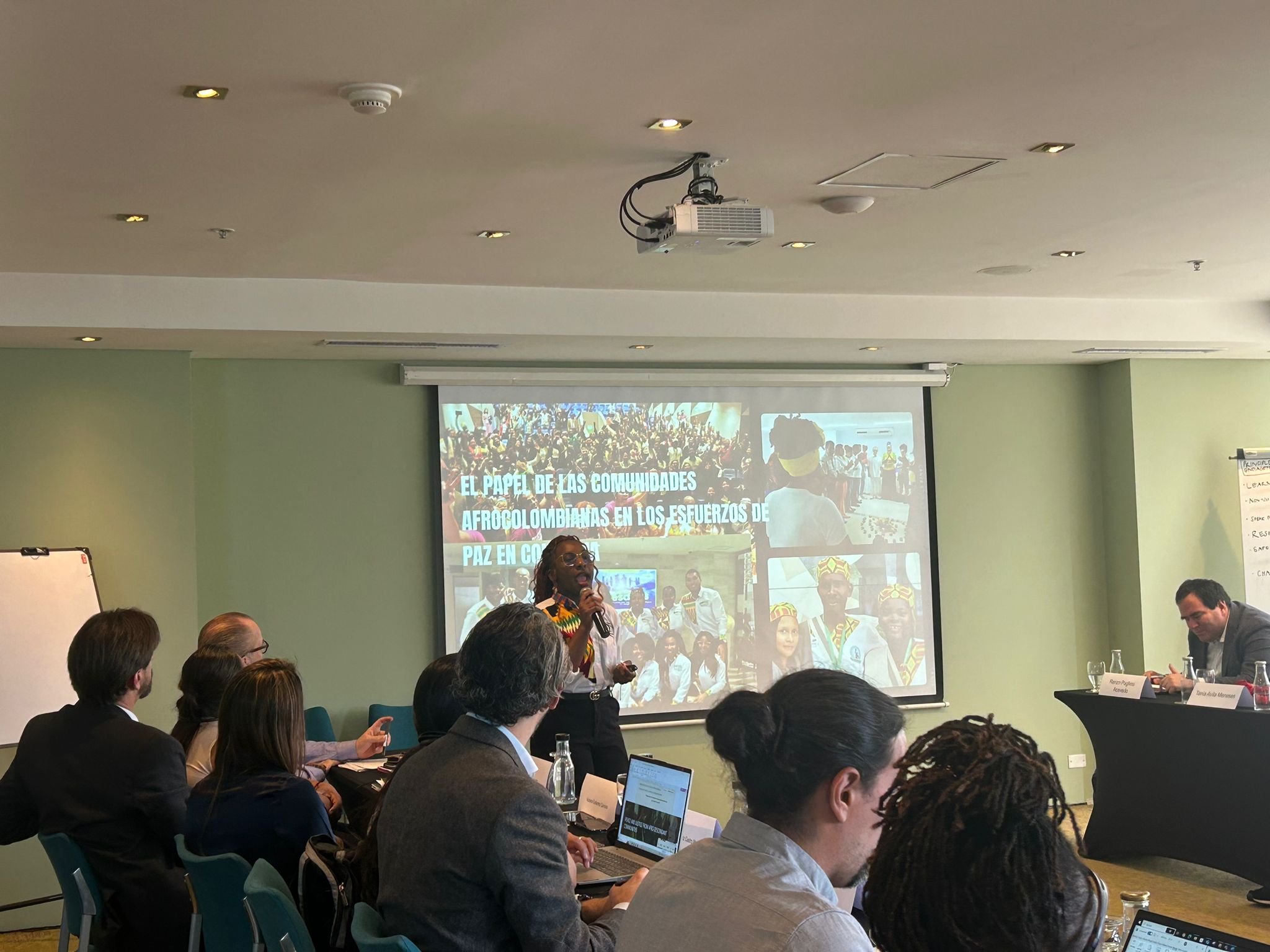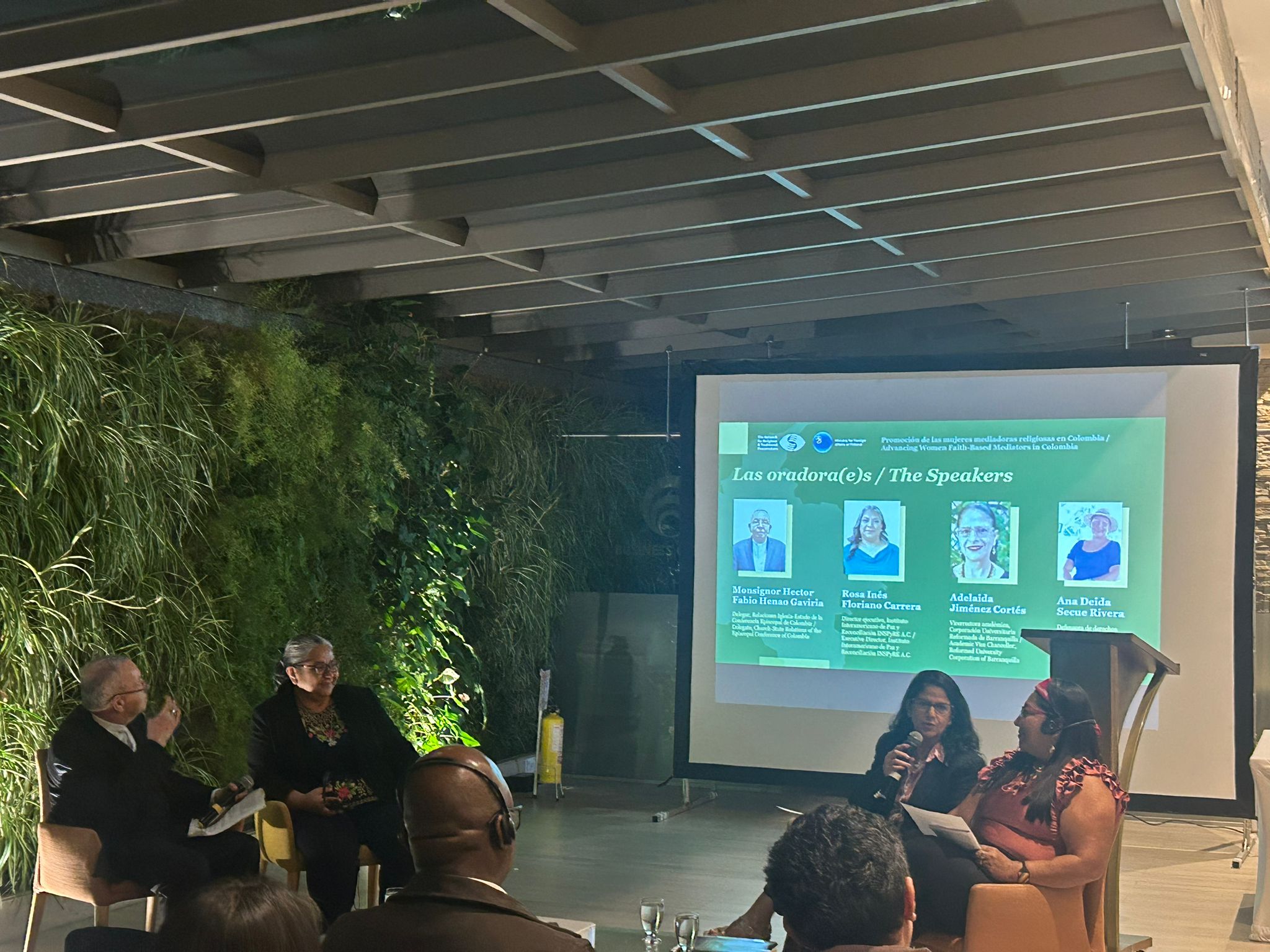United Nations Religion and Mediation Course Focused on the Americas
Training | October 2024
Through the collaborative effort of the Peacemakers Network, the Swiss Federal Department of Foreign Affairs, and Ministry of Foreign Affairs of Finland, CSS/ETH Zurich, and the United Nations Department for Political Affairs (UNDPPA) Mediation Unit, the partners held their annual religion and mediation course with a focus on the Americas region.

Group photo of participants at the UN Religion Mediation Course held in Bogota, Colombia. 2024.
This year’s innovative program was divided in a hybrid format, with an initial three half-day online training, followed by a three-day in-person workshop in Bogota, Colombia. With a thematic focus on religion and mediation, the course examined the parties’ narratives about the drivers of conflict, the issues of dispute, and past and present processes in the context of Colombia, Bolivia, and Ecuador. Considering the respective complex postcolonial contexts with tensions between Indigenous heritages and a Spanish Catholic past, the course underlined the importance of context-sensitive, intersectional conflict analysis, which allows for right-sizing the role of religion and worldviews in conflicts. Additionally, the course explored the roles of different third parties, such as the UN, religious institutions, NGOs, and tradition-and faith-based actors, as mediators and facilitators in peacebuilding efforts and highlighted their different comparative advantages and ways to improve collaboration. The training consisted of 15 UN mediators focused on the Americas region and 10 leading experts and practitioners working in local communities in Colombia, Bolivia, and Ecuador.

Maria Fernanda Uribe of Colombia Diversa presenting on the needs and challenges of LGBTQ+ communities in Colombia during the peace mediation process at the UN Religion and Mediation Course in Bogota, Colombia. 2024.

Lauren Jasury Micolta Gallego, Knowledge Management Consultant of the National Afro-Colombian Peace Council providing a presentation on the challenges and perspectives of Afro-Colombian communities during the peace mediation process at the UN Religion and Mediation Course in Bogota, Colombia. 2024.
As part of the course, the Peacemakers Network held a local launch of its report, ‘Women Faith-Based Mediators in Colombia: Challenges and Opportunities Within Peace Mediation.’ The event opened with a welcome from Ambassador for Peace Mediation for the Ministry of Foreign Affairs Finland, Jan Wahlberg, followed by a global overview of the, ‘Under Crossfire: The Courageous Work of Women Faith-Based Mediators to Prevent, Mitigate and Resolve Violent Conflicts,’ study by Jessica Roland, Senior Specialist for Inclusive Peace of the Peacemakers Network. The event then moved to a panel, moderated by Monsignor Héctor Fabio Henao with speakers: Rosa Inés Floriano, Lay Congregation of the Guadalupan Missionaries of the Holy Spirit and Mediation Network Latin America; Paster Adelaida Jiménez of the Presbyterian Church and government representative in the ELN negotiations; and Ana Deida Secue Rivera, a member of the Indigenous organization Resguardo Huellas Caloto, in northern Cauca.

From left to right: Monsignor Héctor Fabio Henao, Rosa Inés Floriano, Pastor Adelaida Jiménez, and Ana Deida Rivera Secue. Panel of the local Women Faith-Based Mediators in Colombia: Challenges and Opportunities Within Peace Mediation event. 2024.
Floriano highlighted that being interviewed for the study made her realize what a woman faith-based mediator means to her. In the beginning of her work, she thought mediators were only those at the table. Floriano then called for more recognition of the work of women faith-based mediators to help with visibility and acknowledgement of what they contribute to the peace process. Pastor Jiménez then spoke about how for her work,
“Faith cannot be passive, it is political. It allows us to work on the conflict and lived realities. Faith is the driver pushing change in the territories.”
Pastor Jiménez further reflected that for women of faith, ‘we are doing peace mediation because this is from a calling, even if the patriarchy doesn’t recognize it.’ Finally, Secue Rivera reflected that her introduction to peace mediation started from watching her father at age 11 negotiate with the FARC, in how people were being returned home. She now has been active for 43 years and didn’t realize that she was doing peace mediation work until this interview proces, like Rosa.
The Religion and Mediation Course is a specialized training course developed for mediators, peace practitioners, policymakers, and other individuals working to address conflicts in contexts where religion, tradition, and/or different worldviews have strong relevance. This experience-oriented and interactive learning course aims to advance the understanding of how religion, tradition, and worldviews play a role in conflict resolution, provide tools for analyzing the role of religion, tradition, and perspectives in conflict, and advance familiarity in approaches to mediating and transforming conflicts with the aforementioned dimensions.
Follow the Network on social
